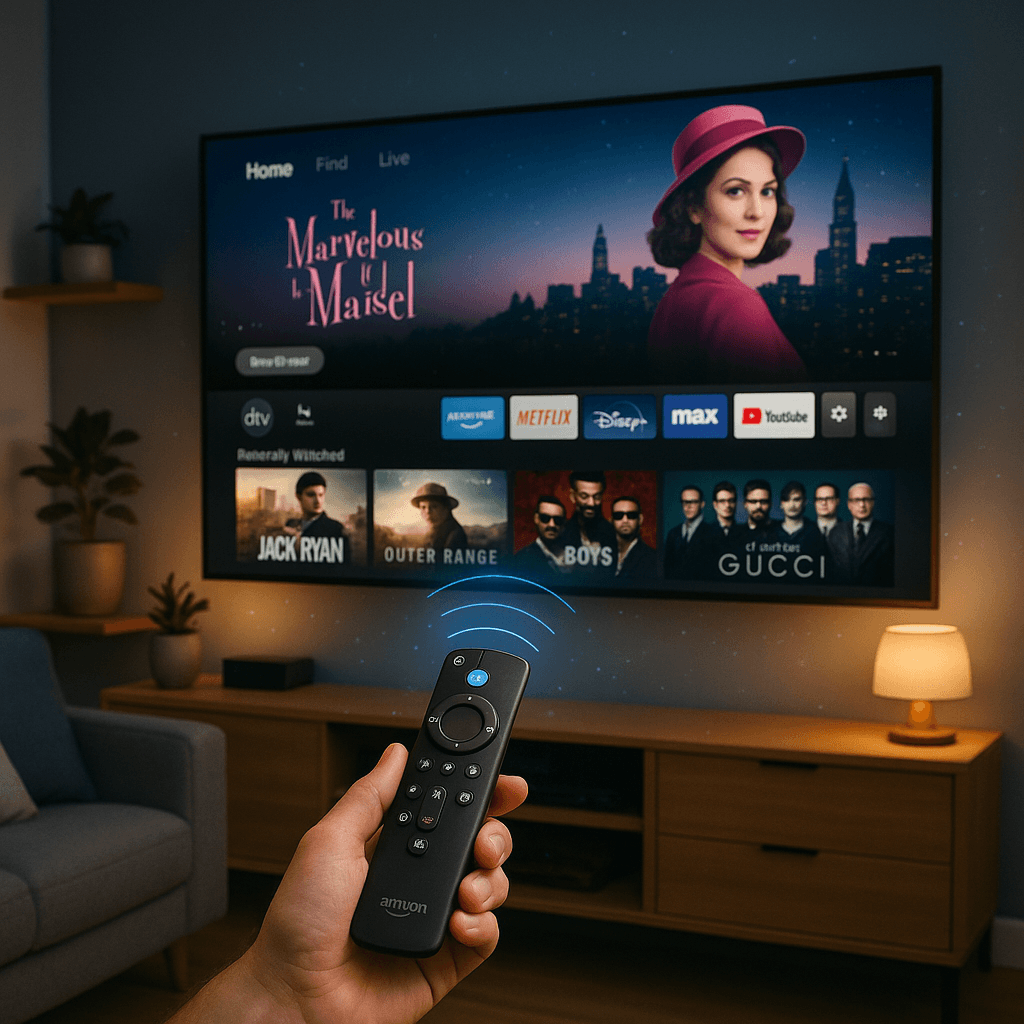Amazon just dropped its biggest Fire TV refresh in years, betting that AI-powered content discovery will finally solve streaming's biggest pain point: finding something to actually watch. The new lineup features Alexa+, an upgraded voice assistant that can find specific scenes in movies and understand conversational queries across all your streaming apps. With nearly 300 million Fire TV devices sold globally, this isn't just a hardware upgrade - it's Amazon's bid to own the living room AI experience.
Amazon is making its boldest play yet for streaming dominance with today's Fire TV announcement. The company unveiled a completely redesigned lineup anchored by Alexa+, an AI-powered voice assistant that transforms how you discover content across every major streaming platform.
The timing couldn't be more strategic. As cord-cutting accelerates and viewers juggle an average of 4.2 streaming subscriptions, Amazon sees an opening to become the central hub for all entertainment discovery. "There's never been more to watch than there is today, yet finding something you'll love is still too hard," the company stated in its official announcement.
Alexa+ represents the biggest leap forward in Fire TV's evolution since its 2014 launch. Unlike traditional voice search that requires specific titles or actors, this AI system understands conversational requests like "show me something like that thriller I binged last weekend" or "find family-friendly movies for tonight." More impressively, it can locate specific scenes within thousands of Prime Video titles, with TV show support coming soon.
The technical specs back up Amazon's ambitious claims. The flagship Omni QLED series delivers displays 60% brighter than previous models with nearly double the local dimming zones. The upgraded processor makes navigation 40% faster, while the new Vega operating system on the Fire TV Stick 4K Select promises remarkably quick app launches at just $39.99.
But hardware is just the foundation. Amazon's real innovation lies in Omnisense technology, which automatically adjusts display colors based on room lighting and powers the TV on when you enter the room. Interactive Art mode responds dynamically to movement, creating an ambient computing experience that extends far beyond traditional streaming.
The competitive implications are massive. Roku has dominated the streaming device market with its simple, platform-agnostic approach, but lacks Amazon's AI capabilities and content ecosystem. Google Chromecast offers similar casting features but can't match Alexa+'s conversational intelligence. Meanwhile, TV remains a premium-priced niche player.












